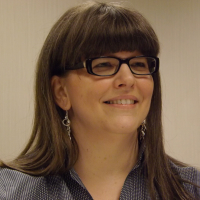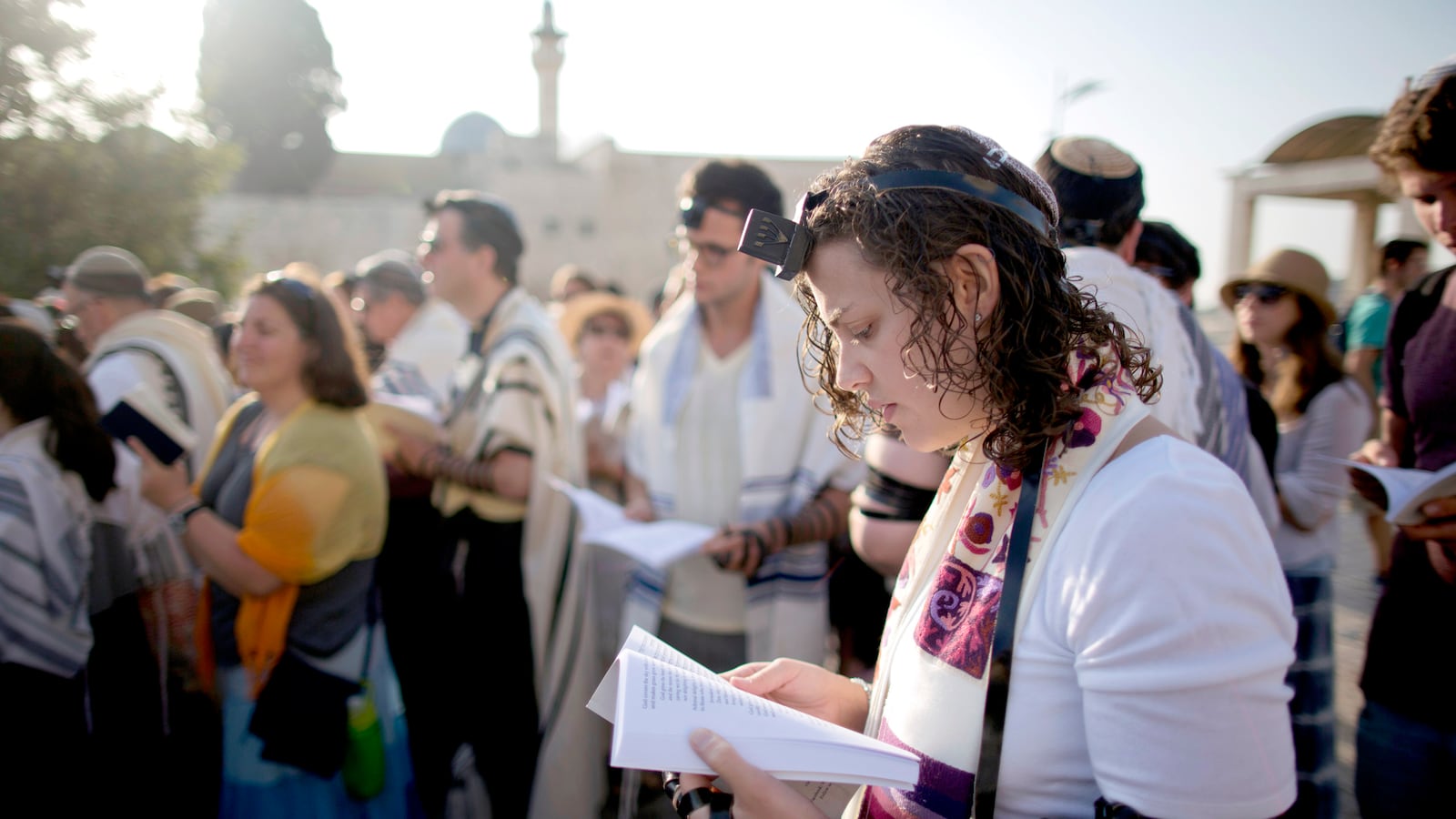According to the Hebrew calendar, we’re now in the month of Av, and fast approaching the single most grief-stricken day of the Jewish year. Tisha b’Av (the ninth of Av) begins on Monday next week, the day on which we mourn the destruction of our Temple (twice), as well as a series of other blood-soaked and heartbreaking events which, according to tradition (and in some cases recorded history), all happened on that single, terrible day. We’re taught that the Temple was destroyed (and by extension, Jewish history turned tragic) because of our own ungodly behavior—because of sinat chinam, baseless hatred.
This came to mind for me as I watched the reports out of Jerusalem this week regarding the monthly prayer service conducted by Women of the Wall at the Western Wall. There they stood, these brave women and their male allies, facing the wrath, the spit, the thrown eggs and tossed chairs of Israel’s ultra-Orthodox community, right there, at the Kotel, on the very remains of our Temple, the very spot where hatred undid us.

It’s easy for a Jew like me—an egalitarian-minded, Conservative-affiliated, American-Israeli Jew—to see the pictures and read the stories and immediately think: They’re doing what undid us. Those men in their beards and 16th century clothes, those young women bused in from religious institutions all over Israel, those people wielding projectiles and venom—they’re doing that which pulled us apart and scattered us to the nations. How can they not see? How, mere days before Tisha b’Av, can world Jewry not see what they’re doing?
But though I am a woman of faith, I attempt to live that faith in the world as it actually is, not as I would like it to be, and the simple truth is: Those people don’t believe that they’re practicing sinat chinam. They believe, and I’m guessing with all their hearts, that they’re protecting the faith of our fathers from one such as me. That their hatred is not only not-baseless, it is righteous.
“Nazism, Amalekitism, and Reform,” they screamed at their fellow Jews—which is to say: The men in the 16th century garb, the school girls, and whoever stood with them believe that women wearing prayer shawls are like Nazis. Like Amalek, the Biblical evil-doer whose name we are enjoined to “blot out.” And just to complete the picture, they rounded their insult off with the word “Reform”—in their eyes, Reform/non-Orthodox Jews are no better than Nazis. No better than Amalek.

The simple and oft-denied truth is that Jews have not been a unified people since that unfortunate incident with the Golden Calf. We’re not a unified people, because no people is. That’s why religions have reforms and upheavals and breakaways—indeed, that’s why the Talmud looks the way it does. Because people have wildly divergent thoughts about the same ideas.
And that’s also why, in a democracy, we’re not supposed to give one form of religious observance preference over the others—the very thing that Israel has enshrined in law, the very thing that allows ultra-Orthodox protestors to behave so vilely toward women who have come to our most sacred site in order to worship the Holy One.
I don’t hate the people who equate Jews like me and Women of the Wall with Hitler. I don’t want to blot them out. I will not suggest that their Judaism is inauthentic. But I do not doubt that their hate for and fear of me is very, very real, and that their political power gives that hate and fear very real consequences.
As a student of history, I believe that we lost our Temple because we were defeated militarily (this sort of thing happened a lot in Jerusalem, to all kinds of people); as a social scientist, I understand that the odium motivating this week’s protests has a good, solid base. There’s nothing we can do about either of those things, and none of my crunchy-granola angst about tikkun olam will change that.
What other-than-ultra-Orthodox Jews need to do is precisely what Women of the Wall is doing: Claim our space. Take the state to court. Insist that there is no single way to be a Jew, and that no Jew can claim hegemony over that which is holy to us all.
Even as I struggle within my own spiritual practice to learn the lessons of Tisha b’Av and expunge sinat chinam from my own heart, I don’t need the ultra-Orthodox to not-hate me. I need the state of Israel to protect my rights.







